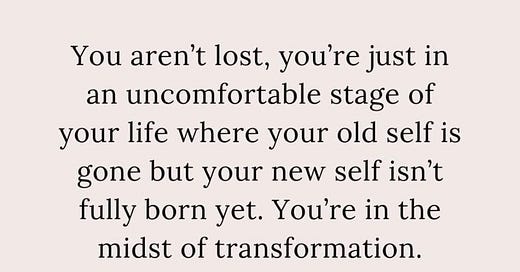Every week, I work with people at different stages of the process. Some are still inside emotionally abusive relationships, trying to make sense of the chaos.
Some are in the middle of high-conflict divorces, exhausted by the documentation, the gaslighting, the court system.
Some are trying to figure out if co-parenting is even possible—or if what they’re experiencing is still abuse in disguise.
The details are different.
The dynamics are eerily familiar.
By the end of the week, there’s always a thread—a pattern that runs through multiple client calls, voice notes, emails, and conversations. Sometimes it’s subtle. Sometimes it hits like a lightning bolt. Either way, I pay attention.
That thread becomes the Theme of the Week.
This series is a place to name what’s coming up in the work, reflect on the deeper pattern beneath it, and offer you language, validation, and clarity—especially if you’re still too close to see it yet.
You’re not alone in your experience. There’s a reason it feels familiar. And you deserve to understand what’s really happening.
This weeks theme: Stop Caretaking When You're Stuck in the Cycle
When you're caught in the cycle of abuse, one of the hardest patterns to see—let alone break—is caretaking.
Not caregiving. Not compassion. Caretaking.
Caretaking means assuming responsibility for someone else’s emotional state, behavior, or healing. It’s trying to manage their moods so they don’t explode. It’s soothing their shame so they don’t spiral. It’s walking on eggshells, overexplaining, predicting their reactions, apologizing just to keep the peace.
It’s survival - but it’s not sustainable.
In the book Stop Caretaking the Borderline or Narcissist, the authors name something so many survivors feel but don’t yet have words for:
That sense of powerlessness that leads us to overfunction.
We think: If I just say it better... If I can just make them feel understood... If I can just avoid their trigger...
Then maybe we won’t be punished. Maybe they won’t rage or withdraw. Maybe we’ll get to feel safe for five minutes.
So we start caretaking the person who is actively harming us.
This is where the cycle tightens:
They behave badly → You try to fix it.
They project shame → You soothe it.
They ignore your needs → You overperform to earn attention.
And when that doesn’t work, you blame yourself. You think you failed. That you didn’t regulate enough.
But what if the answer isn’t doing more? What if it’s doing less?
Not in a cold, withdrawn way—but in a boundary-honoring, reality-anchored way.
You are allowed to step out of the emotional caretaker role.
You are allowed to stop managing their shame.
You are allowed to let them sit with their own discomfort—and learn from it.
That might be the most powerful shift you can make when you feel like nothing else will change.
Because when you stop caretaking, you start reclaiming.
I highly suggest the book: Stop Caretaking the Borderline or Narcissist: How to End the Drama and Get On with Life
I listened to the audiobook years ago and needed to pause many times to really listen.
I plan to post this series each week. If you need support, you can find me at emotionalabusecoach.com






Hi from Colorado! 🌿 https://vibrationalbloom.substack.com/p/my-morning-reset-ritual-celery-juice?r=58yuiy